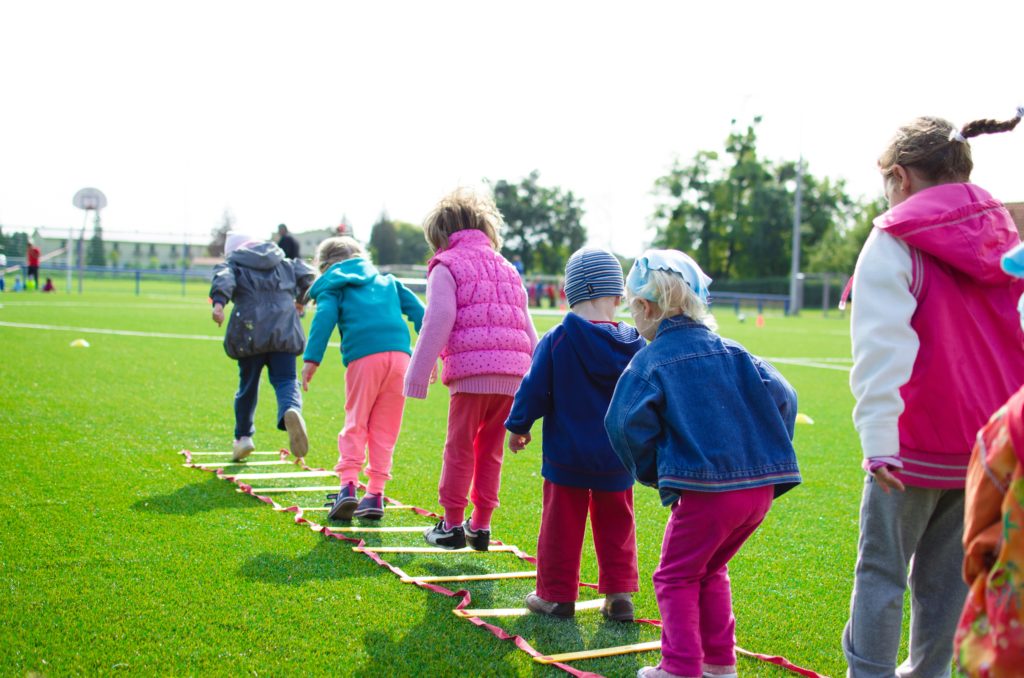Home Education
It is estimated that around 111,700* children are being home educated in England. This movement started with a few pioneering families in the 1950s and has grown exponentially since then with the increasing dissatisfaction of the state education system.
This website explores some of the reasons for this dissatisfaction and provides information about home education for those new to the approach.
*This number comes from the Department for Education – census data autumn 2024
What is the Law on Home Education?
There is no legal obligation for children to attend school but the law says that they must receive a “suitable education”.
In England* and Wales home education is given equal status with schools, under section 7 of the Education Act 1996, which says:
“The parent of every child of compulsory school age shall cause him to receive efficient full time education suitable a) to his age ability and aptitude, and b) any special educational needs he may have, either by attendance at a school or otherwise.”
Scotland and Northern Ireland have their own similar regulations. Internationally, the laws differ from country to country.
*The new Children’s Wellbeing and Schools Bill proposes changes to the law in England. This page will be updated as the Bill develops…
How do you Home Educate?
The UK legislation makes it clear that the responsibility for a child’s education is on the parent, and there are no rules for how this should be approached.
Parents do not have to follow a curriculum or timetable, teach in a formal way, they don’t have to make plans, assess progress or keep up with the age-related expectations of school. Parents can choose an educational approach that best meets the needs of their individual child.
In the UK home education, or home-ed, is an umbrella term and within this there are two main categories, although most people strike a balance between the two:
1. Home Schooling
In the UK home schooling refers to being taught school subjects – and sometimes following the National Curriculum – by family members, friends or tutors.

This is usually combined with other activities and social gatherings outside of the home.
Some families opt for a formal approach, almost re-creating school at home, by dividing tuition up into traditional school subjects. Others believe that education should be more holistic and take a more cross-curricular approach, so that children can more easily make sense of their world.
2. Unschooling
Unschooling is an educational philosophy that advocates learner-chosen activities as a primary means for learning.

Children learn through their natural life experiences including play, household responsibilities, personal interests and curiosity, travel, socialising, books etc.
This approach is congruent with research showing that children are biologically predisposed to take charge of and self-direct their own education.

Unschoolers believe that learning is a normal part of all life, not something separate that occurs at special times and places.
While considered a subset of home educators, unschoolers can be as philosophically separate from home schoolers as they are from advocates of conventional schooling.

Critics of unschooling see it as an extreme educational philosophy, with concerns that unschooled children will lack the skills, structure and motivation of their schooled peers, while advocates of unschooling say exactly the opposite is true:
“Self-directed education in a natural environment better equips a child to handle the real world.”
In this TED talk you can hear from educational thinker and blogger, Alice Khimasia. She explains why she took her sons out of school in favour of an unschooling approach to education.
Part-Time Home Educating
Some families home educate part-time. This means that children are home schooled or unschooled for part of the week and attend an educational setting for the rest of the week. This could be a mainstream school or Montessori if they have a flexi-schooling arrangement in place, a learning co-operative (where teaching or self-directed activities are facilitated by a group of parents), a tutor centre which offers a drop-off programme, a Forest School, or an educational provider which offers democratic or self-directed education.
Four Benefits of Home Education
1. It is bespoke
Parents can tailor their educational approach specifically to their child’s needs and interests. They can also work at the child’s own pace.

For example, students can take GCSEs and A Levels in one go or they can sit one or two subjects at a time. They can take them at the same age as their peers at school or choose to take them earlier or later. This flexibility can greatly reduce students’ levels of stress.
2. Wide variety of subjects and activities
There is a huge range of activities, clubs, and classes specifically set up for home educated children. The subject choice is much wider than can be offered at school.

You can find classes in all the usual school subjects and sports, as well as groups doing things like rock climbing, orienteering, computer coding, web design, philosophy, creative writing, robot building, rocket launching, astronomy, cultural awareness, wood work, circus skills, horticulture and cookery etc.

There is also scope to get involved in community projects and charity work. The options are endless and if parents don’t find a group offering what they’re looking for they can always set one up.
The best way to find out what’s going on in your area is to join local home educator Facebook Groups.
That said, you don’t need to be restricted to your local area as there are options for studying online, either through an Online School or via apps or educational websites of which the range of options is vast. This article lists some of the online resources available.
3. Academic achievement
Research has found that home educated children are three years ahead in academic achievement compared with those who go to conventional school (Peter Hartkamp, 2016).

A study published by the University of Durham in 2000 found that home educated children scored higher on a general mathematics and literacy test than school-educated pupils.
Paula Rothermel, the university’s lecturer in learning in early childhood said:
“This study is the first evidence we have proving that home education is a huge benefit to large numbers of children. Society just assumes that school is best but because there have never been any comparative studies before this one, the assumption is baseless.”
Paula Rothermel, University of Durham
You can find further studies which compare educational outcomes of home educated verses school educated children in our Research section.
4. Learning in the real world
Home educated children have the opportunity to mix with a wider range of people than they would ever meet at school.

They engage with young people of all ages and communicate with adults as equals, without fearing their elders or authority figures. This stands them in good stead for further education and for their future working lives.

Learning can also take place in a wide variety of locations and can be much more participative than is possible in a classroom. Families can spontaneously visit museums, theatres, libraries, landmarks, geographical sites etc.
Learning is incorporated into everyday life. Trips to the supermarket, doctors, banks, and appointments with builders, electricians, plumbers etc are all opportunities to learn.
Home educators believe that learning out in the community is better preparation for adult life than the hierarchical and often authoritarian culture of a school.
This study by Kendall and Atkinson (2006) discusses perspectives on home education and mentions some of its benefits: https://www.nfer.ac.uk/publications/VHE01/VHE01.pdf
Six Myths About Home Education
Myth 1: You need to be a teacher to home educate your child.
You don’t need any formal qualifications or specified work experience to educate your child at home. Home educating requires a completely different skill-set to teaching in a school. You are not required to deliver the National Curriculum or manage a group of 30 children. It’s about tuning in to your child and responding to their individual needs.
Myth 2: Home educated children miss out on socialising.
The term ‘home education’ is perhaps misleading as it could imply that children are learning at home in isolation from their peers. This is a misconception as most children are involved with a huge array of social activities outside of the home.
A recent survey of home educators in Australia investigated this argument.
It concluded that home educated children have ample opportunities for socialisation. “This includes being involved in various learning and other community groups, and participating in homeschooling co-ops”. The researchers said that:
“Our survey and interviews demonstrated homeschooled children were active members of their community, and were far more socially engaged than public misconceptions suggest.”
Other studies have found that home educated children have better social skills than those attending conventional schools. You can find a study from the US by Richard G. Medlin, Ph.D in our Research and Articles section.
Myth 3: Home education is just for excluded or off-rolled children.
Permanent Exclusion:
This is when a student is expelled. Headteachers can exclude a student if they misbehave in or outside of school.
Off-Rolling:
This is defined by Ofsted as “removing a pupil from the school roll without a formal, permanent exclusion or by encouraging a parent to remove their child from the school roll, when the removal is primarily in the interests of the school rather than in the best interests of the pupil.”
Elective Home Education:
While some parents have to home educate for the reasons above, many others are elective home educators whose children either never went to school in the first place because they wanted something different, or they deregistered from school because it didn’t live up to their expectations or aspirations.
Myth 4: Home education is just for children with special educational needs (SEN).
As mentioned above children are home educated for many reasons. SEN might be a contributing factor for some but it’s certainly not the case for all.
Interestingly, when children with SEN are taken out of school, their conditions can become less of an issue. For example, Psychologist, Dr Peter Gray conducted some research into children with diagnosed ADHD who had been withdrawn from school and begun home educating. He found that in the majority of cases, the children had been able to come off their medication and no longer had problems with learning.
Myth 5: Home educating is a soft option and shelters children from normal pressures of life.
Home educating doesn’t mean wrapping children up in cotton wool. They mix with a broad range of people, some they’ll get along with, some they won’t. There will be challenges along the way with social conflict, difficulties in their work, things they like/things they don’t like, disappointments etc.
The difference is that home educated children are learning in a supportive community, where they have the opportunity to discuss their challenges and learn how to deal with them, thus enabling them to become emotionally robust and resilient. They learn the coping strategies for difficult situations.
Conversely, in a school environment, the pupil to teacher ratio makes supportive communication more difficult. There just isn’t time. Issues can be left ignored or unresolved, children cannot always learn from incidents that take place, and emotions can be suppressed.
In her book, Two Thousand Kisses a Day: Gentle Parenting Through the Ages and Stages, L.R. Knost says:
“It’s not our job to toughen our children up to face a cruel and heartless world. It’s our job to raise children who will make the world a little less cruel and heartless.
Instead of raising children who turn out okay despite their childhood, let’s raise children who turn out extraordinary because of their childhood.”
Author, L. R. Knost
Myth 6: Home educated children should go to school to get back to normality and live in the real world.
While home educators may seem unconventional, these families could be described as pioneering. It is brave to go against the grain and stand up for what you believe in.
There is an accepted norm in our culture that children don’t like school, people say it’s character building or it toughens them up. It’s almost a national joke that children don’t want to go to school or that they find it boring.
Home educators however would argue that it is society’s view of normal that needs to change. Children have human rights and needs which many believe are not being met at school.
“What is most important and valuable about the home as a base for children’s growth into the world is not that it is a better school than the schools, but that it isn’t school at all.”
Educator and author, John Holt
One of the reasons often given for choosing home education is that parents worry that school culture is in fact far removed from the real world, for example with its lack of democracy and limited opportunity for creative, critical thinking. Business leaders and economists agree. They are concerned that students are leaving school without the skills needed for adult life and the workplace.
Five Challenges of Home Education
1. It is a big commitment for parents in terms of time and energy.
2. It can add financial pressure to the family, as the wage-earning potential of the parent(s) is reduced.
3. For those new to home education, it can feel daunting breaking into a new community. It’s similar to when parents first go on maternity/paternity leave and they’re launched into a new world. You have to be proactive in building a new network for yourself and your children.
There is however a large, growing, supportive community of home educators. Many of them connect via national Facebook groups and there are also regional Facebook groups where you can find out what’s going on in your area.
4. It can be hard to find time for yourself.
5. There is still a social stigma attached to home educating. It can be wearing for parents to have to explain and defend their decision.
This study by Kendall and Atkinson (2006) discusses perspectives on home education and mentions some of its challenges: https://www.nfer.ac.uk/publications/VHE01/VHE01.pdf
Voices from the Sector
Read some of our interviews with home educating parents.
Famous Faces from the Home Educating Community

Credit: Justin Harris, Flickr, CC BY 2.0, https://commons.wikimedia.org/w/index.php?curid=65640877
Notable members of society and celebrities who chose to home educate their children include actors, Emma Thompson, Patsy Palmer, Mayim Bialik and Will Smith;
British TV presenter vocal coach couple, Carrie and David Grant;

Credit: Maurizio Pesce from Milan, Italia [CC BY 2.0 (https://creativecommons.org/licenses/by/2.0)]
British TV presenters Nadia Sawalha and Stacey Solomon;
Singer/Songwriter, Paul Weller;
Technology entrepreneur, Elon Musk.
Famous people who were home educated themselves include tennis star, Coco Gauff and Singer/Songwriter, Billie Eilish.
Books About Home Education
Free to Learn, by Peter Gray
Learning All the Time, by John Holt
Educating your Child at Home, by Jane Lowe & Alan Thomas
Dumbing us Down, by John Taylor Gatto
How Children Learn at Home, by Alan Thomas & Harriet Pattison
Project-Based Home Schooling, by Lori Pickert
The Brave Learner: Finding Everyday Magic in Homeschool, Learning and Life, by Julie Bogart
Unschooled: Raising Curious, Well-Educated Children Outside of the Classroom, by Kerry McDonald
Teach Your Own: The John Holt Book of Home Schooling, by John Holt & Pat Farenga
Home Learning Year by Year: How to Design a Homeschool Curriculum, by Rebecca Rupp
Schooling at Home: Parents, Kids and Learning, by Anne Pedersen & Peggy O’Mara
Learning Without School, by Ross Mountney
Teach Yourself Home Education, by Deborah Durbin
A Home Education Notebook: to encourage and inspire, by Ross Mountney
What is Unschooling? By Pam Laricchia
Radical Home Education: Discover Home Education through the true accounts of five families, by Susan Walklate
Modern Miss Mason: Discover How Charlotte Mason’s Revolutionary Ideas on Home Education Can Change How You and Your Children Learn and Grow Together, by Leah Boden and Ainsley Arment
Useful Home Education Websites
Streams – A new website devoted to encouraging, empowering and connecting home educators through stories and reviews.
Home Education UK (HEUK) – Aims to be the “finest online resource for home educators in the UK”.
Suitable Education – Information about how children learn with evidence demonstrating how home education is a reasonable, logical and positive response to the challenges of our education system.
Education Otherwise – A support organisation offering information and resources for home educators.
Educational Freedom – Support for everyone, inclusive of all styles of home education.
Doing Education Differently – Includes case studies of young home educators, as well as adults who were home educated themselves, plus a campaign to raise the profile of home education.
Ed Yourself – Provides data analysis of elective home education practice and policy in England and Wales.
Schoolhouse – Scotland’s National Home Education Support Charity.
Grown Unschoolers – Profiles of grown unschoolers, in their own words
Bravewriter – The Homeschool Alliance, an online resource for home educators.
HomeEd Club – Explore clubs, workshops and services from across the UK. Discover what’s trending and enhance your home ed experience.
Acorns Home Ed Marketplace – “Search learning sessions, tutors, meet-ups, trips, resources and more. Find all of your local home education needs and hubs on ONE site!”
Home Education Blogs
Home Education Facebook Groups
Progressive Education Group – Our supportive forum discussing progressive approaches to education (including home education) and why they are so important in the 21st century.
Educational Freedom – UK – Home Education Group
Home Education For All (H.E.F.A) UK
Learning Begins in Wonder – Provides free and subsidised events, resources and support to UK home educating families.
Body, Mind and Soul Care for Home Educators – A place to inspire, share and support each other on journeys through homeschooling, wellness and ‘feeling the best we can’.
Home Education Podcasts
Unschooling Conversations – Conversations with Heidi Steel and guests, discussing life and learning from an unschooling perspective.
What can we learn from unschooling? – A conversation with May Ling Thomas on the wonderful Flourishing Education podcast.
Life Without School – Helping you and your children live the life you want to, not just the one you’re told you should.
Home Grown Learning – To help you consider your options, whether you are thinking about taking the plunge or well into your home school journey.
Unschooling Mom2Mom – Get answers to your questions about unschooling
The Unschool Space – Conversations with unschooling parents about their journeys: What they’ve learned about themselves, how they keep healthy and balanced, and how unschooling has challenged them and enriched them.

